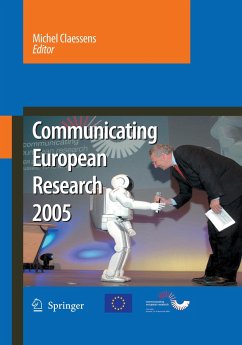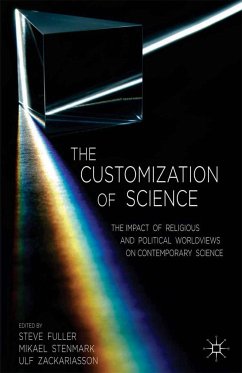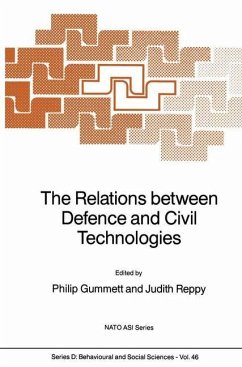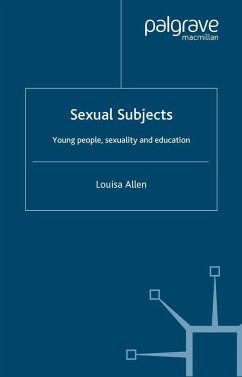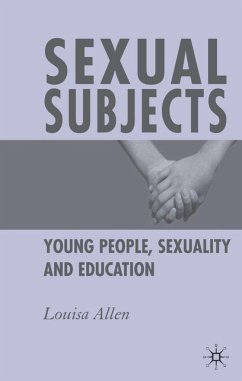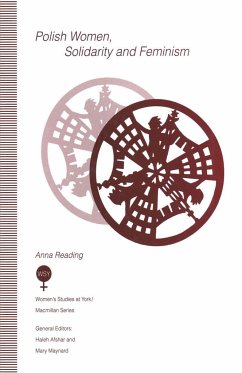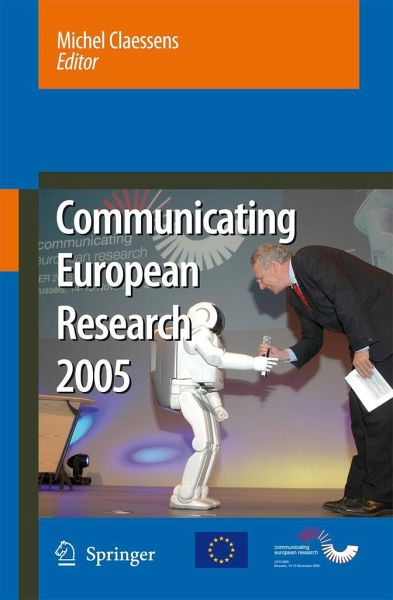
Communicating European Research 2005
Proceedings of the Conference, Brussels, 14-15 November 2005
Herausgegeben: Claessens, Michel

PAYBACK Punkte
57 °P sammeln!
The book contains a series of 40 articles written by forward-thinking speakers who presented their findings at the "Communicating European Research 2005" event which was organised by the European Commission in Brussels on 14-15 November 2005.This event was attended by well over 2,100 participants. The contents of this book clearly illustrate that a highly important element of research projects funded by the European Union is communication. Authors include scientists, journalists and communication professionals.The book covers the main aspects of science and technology communication today and a...
The book contains a series of 40 articles written by forward-thinking speakers who presented their findings at the "Communicating European Research 2005" event which was organised by the European Commission in Brussels on 14-15 November 2005.
This event was attended by well over 2,100 participants. The contents of this book clearly illustrate that a highly important element of research projects funded by the European Union is communication. Authors include scientists, journalists and communication professionals.
The book covers the main aspects of science and technology communication today and addresses topical questions such as: Is science journalism necessary at all? Should communication become one of the basic skills of scientists, as compulsory as thinking, testing and experimenting? Should our schools of the future put scientific literacy at the top of the science curriculum? Do we need science critics? Does the coverage of science in the media reflect the choice of the editors or does it accurately mirror the public's interest? How does one capture the public's attention when promoting science on local, commercial or entertainment radio? Why would we need standards in science communication? How can we remove any obstacles to communication among researchers and between researchers?
The book casts light on these issues and many others. It offers a selection of good practices and professional services to scientists and science communicators, and should help them design and carry out their communication activities with a European and international dimension.
This event was attended by well over 2,100 participants. The contents of this book clearly illustrate that a highly important element of research projects funded by the European Union is communication. Authors include scientists, journalists and communication professionals.
The book covers the main aspects of science and technology communication today and addresses topical questions such as: Is science journalism necessary at all? Should communication become one of the basic skills of scientists, as compulsory as thinking, testing and experimenting? Should our schools of the future put scientific literacy at the top of the science curriculum? Do we need science critics? Does the coverage of science in the media reflect the choice of the editors or does it accurately mirror the public's interest? How does one capture the public's attention when promoting science on local, commercial or entertainment radio? Why would we need standards in science communication? How can we remove any obstacles to communication among researchers and between researchers?
The book casts light on these issues and many others. It offers a selection of good practices and professional services to scientists and science communicators, and should help them design and carry out their communication activities with a European and international dimension.





